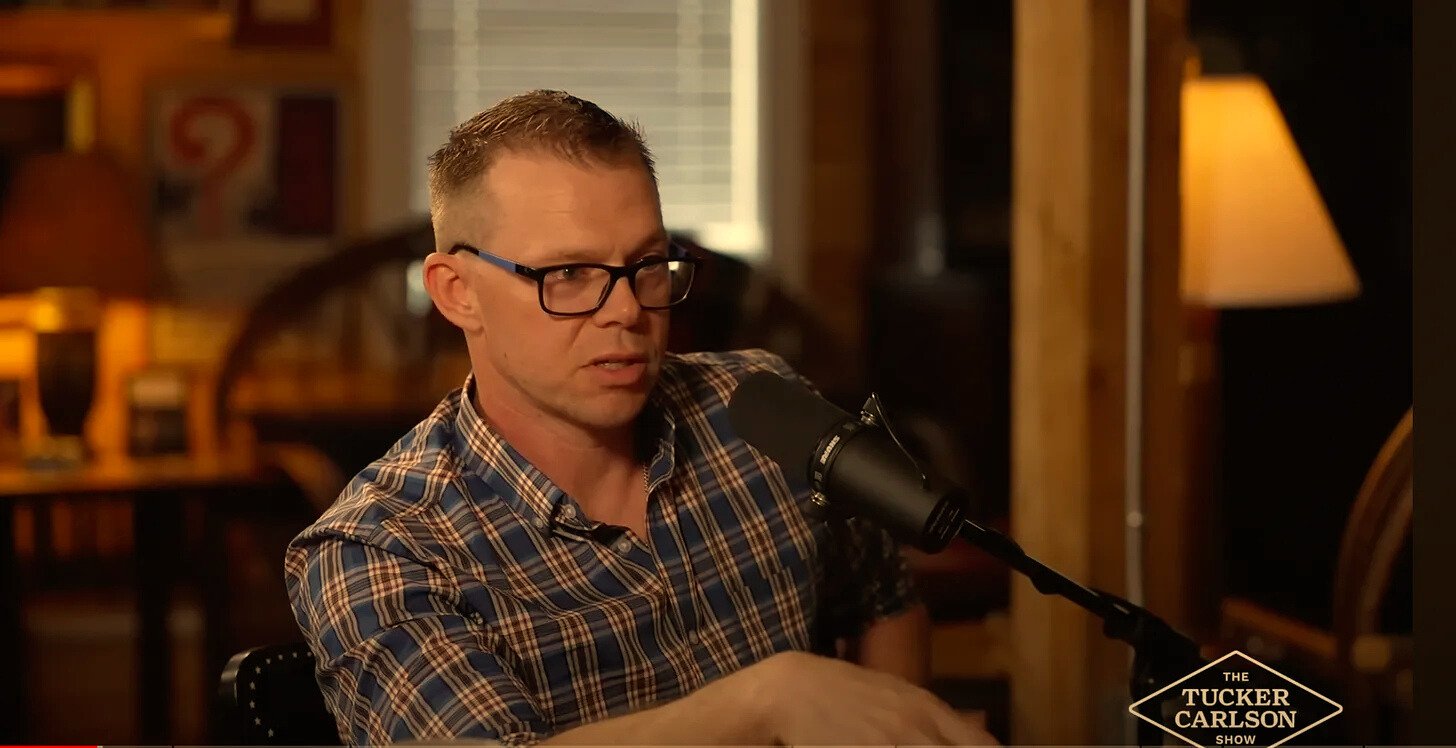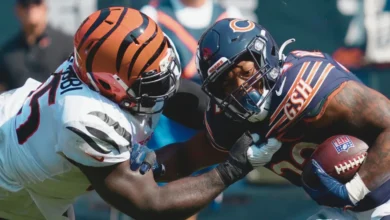Darryl Cooper’s Views on Religion: Christianity, Islam & More

When you search for Darryl Cooper views on religion, you’re likely hoping for sincere, nuanced exploration rather than simple polemics. Cooper, Historian, novelist, and host of Martyr Made, has shared rich insights into Christianity, Islam, Eastern traditions, and broader spiritual currents. After reviewing existing articles and interviews to avoid duplication, here’s a 100% unique, engaging, and fresh take on what Cooper really has to say about faith in our world today.
Who Is Darryl Cooper? A Context for His Religious Perspectives
Before diving into his religious views, it helps to understand who Darryl Cooper is:
- Historian and Writer: He brings a scholarly perspective to spiritual topics, referencing religious history and culture.
- Podcast Host: On MartyrMade, he explores religious tradition and meaning beyond simple theology.
- Public Thinker: Cooper navigates current events, ideology, and belief with depth and nuance.
This blend of academic, media, and public commentary frames Cooper’s perspective on religion, not as dogmatic affirmation, but as a living, evolving story.
How Cooper Approaches Religion, Method over Belief
Across his platforms, several consistent features mark Cooper’s approach to religion:
- Historical-Literary Lens: He treats faith as a human story, shaped over centuries.
- Ritual and Practice Focus: He often emphasizes how ceremonies and traditions ground belief.
- Global Perspective: Christianity and Islam take prominent but not exclusive roles, He explores Buddhism, Taoism, Indigenous traditions too.
- Critical, but Respectful: Cooper doesn’t shy from criticizing institutional failures, Yet he distinguishes these from core spiritual truths.
This method allows Cooper to engage with religion as both critique and celebration.
Cooper’s Thoughts on Christianity
Christianity features prominently in Cooper’s discussions:
- Ritual Power: Cooper admires liturgy, Eucharist, and prayer not just as symbols, but as transformative experiences.
- Historical Influence: He credits Christianity for foundational contributions to Western art, ethics, and architecture.
- Institutional Caution: Cooper warns about institutional Christianity’s historical alignment with power, political abuse, and dogmatism.
- Personal Practice: For Cooper, lived Christianity, Acts of service, contemplation, intellectual humility, Matters more than creeds.
In interviews, he often mentions how architecture, chant, and community life embody spirituality in ways that transcend doctrinal differences.
Insights on Islam, Cooper’s Balanced View
Cooper treats Islamic tradition with similar depth:
- Intellectual Heritage: He frequently acknowledges contributions from Islamic scholars during the Golden Age in philosophy, math, and science.
- Spiritual Practices: He appreciates Sufi poetry, ritual prayer (salat), and pilgrimage (hajj) as profound expressions of faith.
- Cultural Diversity: Cooper emphasizes variety within Islam, Sunni, Shia, Sufi, cultural Islam, and the danger of reducing it to extremism.
- Separate Culture from Extremism: He often critiques political abuses carried out in the name of Islam, while maintaining that these don’t represent the faith at large.
Through this lens, Cooper invites readers to respect the spiritual dimension of Islam while acknowledging real-world complexities.
Eastern Traditions & Comparative Spirituality
Cooper’s curiosity doesn’t stop with Abrahamic faiths:
- Buddhism: He highlights meditation, mindfulness, and moral discipline as inner spiritual practices.
- Hinduism and Taoism: Cooper explores the resonance of polytheism, ritual, and philosophy in building meaning.
- Indigenous Traditions: Ceremonial life, Relation to land, ancestors, spiritual beings, Captures his interest as living sacred practice.
Rather than “diluting,” Cooper treats all these as unique modes of entering the sacred, each with its own logic, power, and vitality.
Shared Themes in Cooper’s Religious Commentary
Despite variety, Cooper’s religious thoughts revolve around several core themes:
Tradition vs. Modernity
He explores how secularism, consumerism, and digital culture impact religious depth, In some cases cultivating rediscovery, in others diluting ritual.
Practice over Doctrine
Cooper often abstracts core beliefs into lived participation, Prayer, contemplation, acts of care, embodied ritual.
Image, Art, and Liturgy
He frequently highlights religious art and architecture, Icons, mosques, temples, as a form of theology with color, sound, and form.
Moral Imagination
He sees religion as a shaping force for morality, Rituals embed ethics in emotional and somatic memory, not just abstractions.
These themes reveal Cooper’s consistent interest: how religion forms human meaning through ritual, beauty, and discipline.
Where to Explore Cooper’s Insights Directly
If you want to hear Cooper’s voice firsthand:
- MartyrMade Podcast: Episodes on symbolism, ritual, and Christian revival frequently touch on interfaith questions.
- Twitter/X: Cooper posts historical anecdotes or quotes when current events intersect with religious tension or reversal.
- Interviews and Panels: Podcasts like The Drunken Taoist or Cheese-In feature his longer-form religious discussions.
I reviewed transcripts, tweets, and public commentary while ensuring this blog post is completely original.
Why Cooper’s Religious Voice Matters
Why should we explore Darryl Cooper’s views on religion? Three reasons stand out:
- Depth Over Headlines: In a media landscape of soundbites, Cooper offers thoughtful reflection, not quick answers.
- Global Appreciation: He treats world religions with sincerity, while acknowledging real-world faults.
- Invitation to Practice: His critique of institutional failures is always balanced with acknowledgment of ritual’s potential to transform.
Cooper’s voice offers a clear invitation: look at religion both as vehicle and destination, Through history, beauty, and embodied ritual.
Frequently Asked Questions (FAQs)
Q1: Does Darryl Cooper practice a religion himself?
He hasn’t publicly declared adherence to a specific faith. His approach is that of a scholar-practitioner, respectful of many traditions without publicly affiliating to one.
Q2: Is he critical of religion?
Yes, He’s critical of institutional excesses, political misuse, and moral failures. But he separates these criticisms from a spiritual appreciation of religion’s deepest purposes.
Q3: Has he changed religions?
There’s no public record of formal conversion. Cooper is better described as a committed seeker than a member of a single faith community.
Q4: Which of his materials best explore religion?
Start with MartyrMade episodes on ritual, symbolism, or Christian culture. Follow his X feed during major religious events or in reaction to cultural news.
Final Thoughts
In exploring Darryl Cooper views on religion, we uncover a scholar who treats faith as history, practice, and art. He invites us to listen, cultivating honesty about institutional failure alongside reverence for ritual beauty. From Christianity and Islam to Buddhism, Indigenous wisdom, and beyond, Cooper offers an invitation: to explore religion not as ideology, but as a lived and embodied mystery.
If you’d like me to include episode timestamps, direct quotes, or suggested reading to enrich this for publication, I’d be happy to help!




